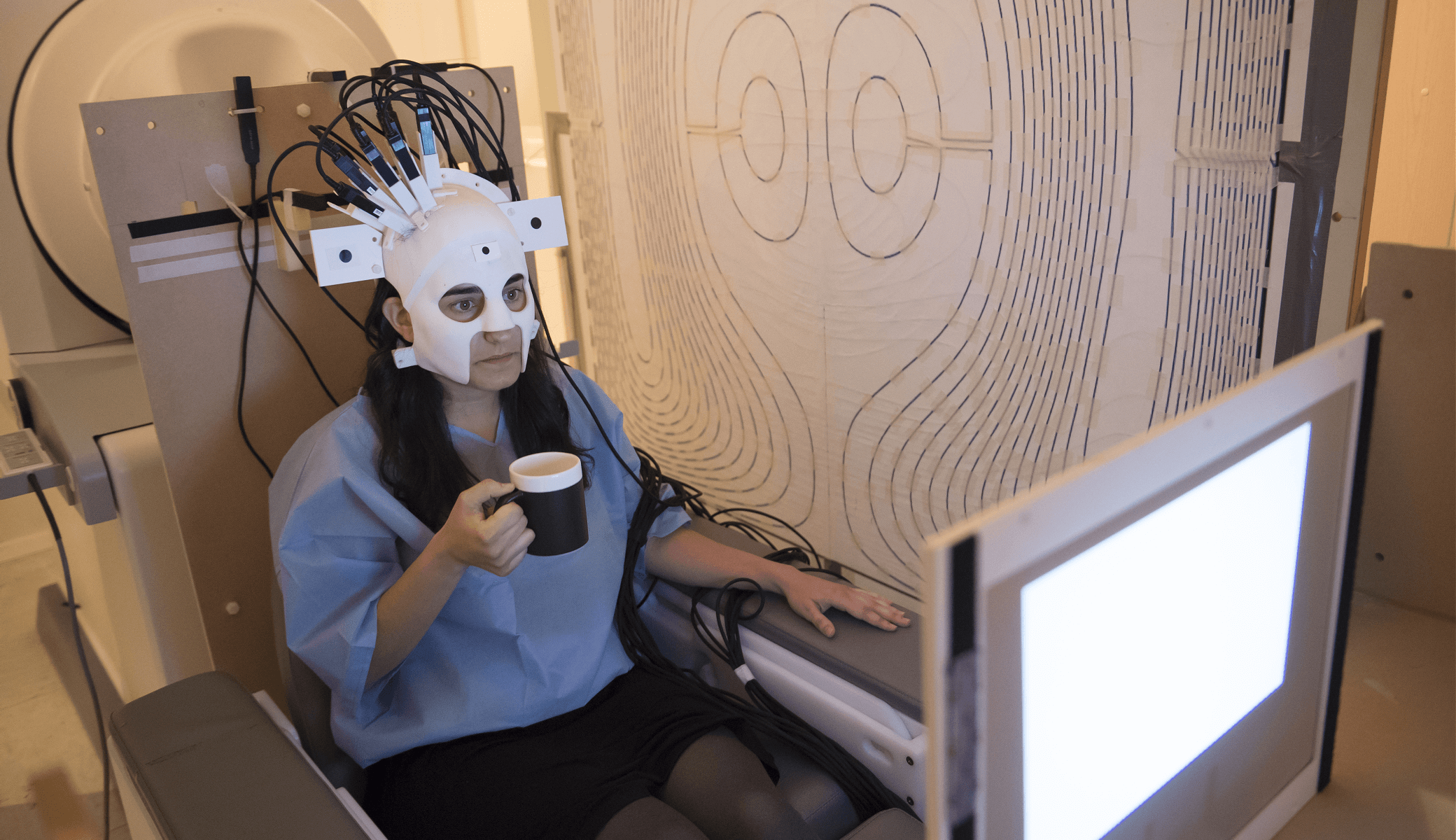Research topics
The MEG lab in Nottingham opened in 2007, and our research spans everything from the development of new MEG hardware to clinical application in mental health. Our current research includes:
- Source localisation algorithms, in particular the use of novel statistical approaches and adaptive beamformer techniques
- New methods to measure connectivity between spatially separate brain regions and techniques to track the dynamics of neural networks
- Multi-modal neuroimaging, relating electrophysiology to quantitative markers of brain microstructure, neurochemistry and haemodynamics
- The modulation of neural oscillations by sensory and cognitive tasks and the characterisation of their role in mediating long range connectivity
- Biophysically informed mathematical models of neural systems, and their relationship with empirical MEG data
- The spatiotemporal signatures of neural networks in the somatosensory system, and their perturbation in disorders such as focal hand dystonia
- Abnormalities of neural networks and their dynamics in mental health disorders, including schizophrenia and autism spectrum disorders
- Development of novel quantum magnetic field sensors and their application in “wearable” brain imaging systems
- Changes in neural network oscillations and dynamics throughout neurodevelopment and the relationship to behaviour
Research facilities and equipment
The MEG lab in Nottingham is equipped with a 275 channel CTF axial gradiometer MEG system, installed in 2007 and upgraded with new electronics and real time capabilities in 2017. In addition, we are in the process of building a novel 20 channel Optically Pumped Magnetometer MEG system. Both are located in a magnetically shielded room. Visual stimuli are provided by a PROPixx projection system (VPixx) and eye tracking can be performed using an EyeLink 1000 Plus eye-tracker (SR Research).
Location
The MEG laboratory at the University of Nottingham is part of the Sir Peter Mansfield Imaging Centre (SPMIC). More information about SPMIC is available at the following link: http://www.nottingham.ac.uk/spmic.
People
Academic Investigators
Dr. Matthew Brookes
School of Physics and Astronomy
Prof. Peter Morris
School of Physics and Astronomy
Prof. Richard Bowtell
Head of Sir Peter Mansfield Imaging Centre
Dr. Karen Mullinger
School of Physics and Astronomy
Prof. Susan Francis
School of Physics and Astronomy
Dr. Stamatios Sotiropoulos
School of Medicine
Dr. Markus Bauer
School of Psychology
Prof. Peter Liddle
Institute of Mental Health
Dr. Elizabeth Liddle
Institute of Mental Health
Dr. Maddie Groom
Institute of Mental Health
Dr. Martin Schuermann
School of Psychology
Prof. Stephen Coombes
School of Mathematics
Prof. Ian Dryden
School of Mathematics
Fellows
Dr. George O’Neill
Research Fellow
Dr. James Leggett
Research Fellow
Dr. Lauren Gascoyne
Research Fellow
Dr. Jyothika Kumar
Research Fellow
PhD Students
Lucrezia Liuzzi
PhD Student
Eleanor Barratt
PhD Student
Elena Boto
PhD Student
Niall Holmes
PhD Student
Gillian Roberts
PhD Student
Ryan Hill
PhD Student
Elinor Thompson
PhD Student
Kanad Mandke
PhD Student
Jonathan Davies
PhD Student
Daisie Pakenham
PhD Student

